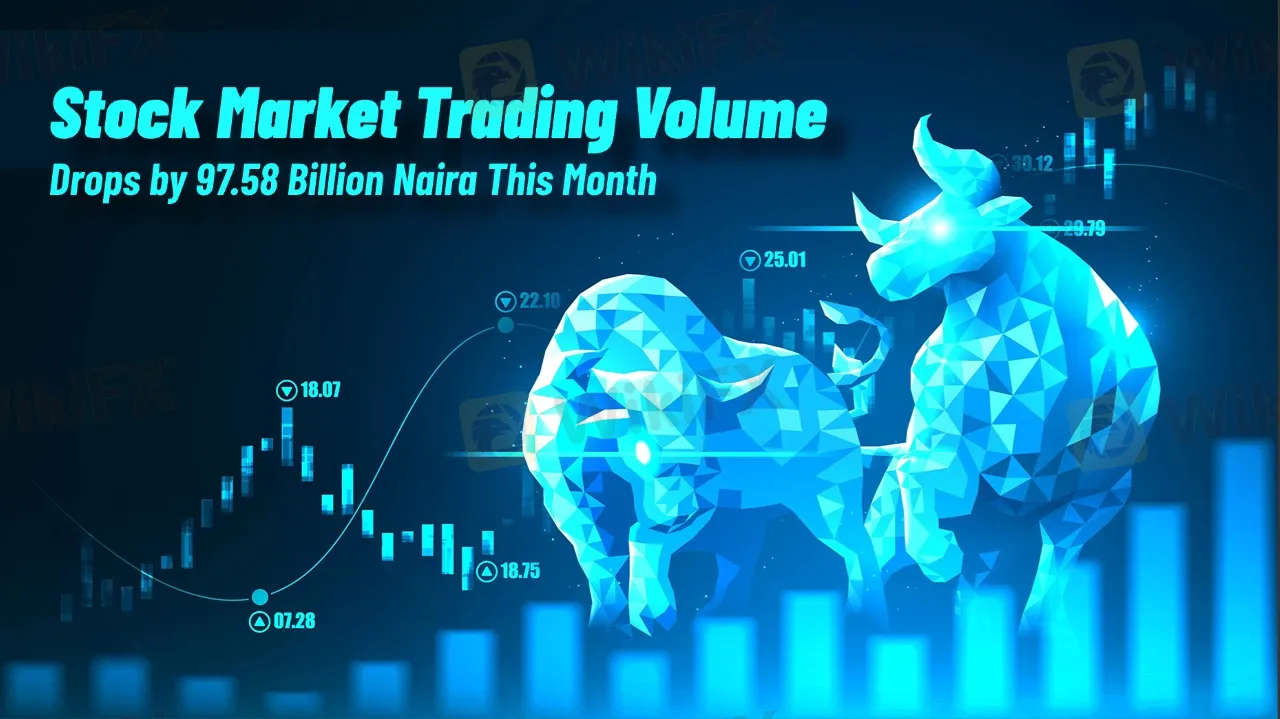简体中文
繁體中文
English
Pусский
日本語
ภาษาไทย
Tiếng Việt
Bahasa Indonesia
Español
हिन्दी
Filippiiniläinen
Français
Deutsch
Português
Türkçe
한국어
العربية
Stock Market Trading Volume Drops by 97.58 Billion Naira This Month
Abstract:In February, Nigeria's stock market trading volume dropped by 97.58 billion naira, with foreign investors pulling back. Can domestic investors sustain the market?

In February 2025, total stock trading volume on the Nigerian Exchange fell to 5,094.7 billion naira, marking a 16.07% decline from January, a drop of 97.58 billion naira.
The decrease was mainly driven by lower market activity, particularly a sharp fluctuation in foreign investments. However, compared to the same period in 2024, trading volume still saw a 42.36% increase, indicating a positive long-term trend.
The key factor behind the fluctuations is the changing behavior of both domestic and foreign investors. While domestic trading fell by 12.83% in February, it remained the dominant force in the market.
Meanwhile, foreign investor participation plummeted by 40.36%, reflecting caution amid market uncertainties. Additionally, retail investors showed reduced activity, while institutional investors maintained a relatively stable influence.
Challenges Ahead for the Market
Looking ahead, uncertainties remain, particularly regarding the long-term impact of foreign capital outflows. Macroeconomic conditions, inflationary pressures, and currency fluctuations could continue to affect market performance.
However, the steady participation of domestic institutional investors may help stabilize the market. Investors should closely monitor market trends and adjust their strategies accordingly to navigate potential risks and opportunities.

Disclaimer:
The views in this article only represent the author's personal views, and do not constitute investment advice on this platform. This platform does not guarantee the accuracy, completeness and timeliness of the information in the article, and will not be liable for any loss caused by the use of or reliance on the information in the article.
Read more

OctaFX Flagged by Malaysian Authorities
OctaFX has been officially listed on warning lists by both Bank Negara Malaysia (BNM) and the Securities Commission Malaysia (SC). These alerts raise serious concerns about the broker’s status and whether it is legally allowed to operate in Malaysia.

TradingPRO: A Closer Look at Its Licences
In an industry where safety and transparency are essential, the regulatory status of online brokers has never been more important. For traders seeking to protect their capital, ensuring that a platform operates under recognised and stringent oversight can make all the difference. Keep reading to learn more about TradingPRO and its licenses.

Oil Price Breakout Incoming? Investors Should Stay Alert
Oil prices are hovering around a critical level, with potential yet to be fully unleashed. Investors must prepare for sudden changes.

New SEBI Regulations on Intraday Trading
The Securities and Exchange Board of India (SEBI) has implemented revised regulations on Intraday trading, with effect from November 20, 2024. These regulations are meant to lessen risks and prevent speculative trading practices.
WikiFX Broker
Latest News
SkyLine Guide 2025 Malaysia: 100 Esteemed Judges Successfully Assembled
Vantage Markets Review 2025: Trusted Forex and CFD Trading Since 2009
TradingPRO: A Closer Look at Its Licences
The world could be facing another ‘China shock,’ but it comes with a silver-lining
A Guide to Intraday Forex Trading You Can't Miss Out
CONSOB Blocks Access to 13 Unauthorized Investment Websites
Why STARTRADER Is Popular Among Traders?
New SEBI Regulations on Intraday Trading
Everything You need to know about Barath Trade
OctaFX Flagged by Malaysian Authorities
Currency Calculator


